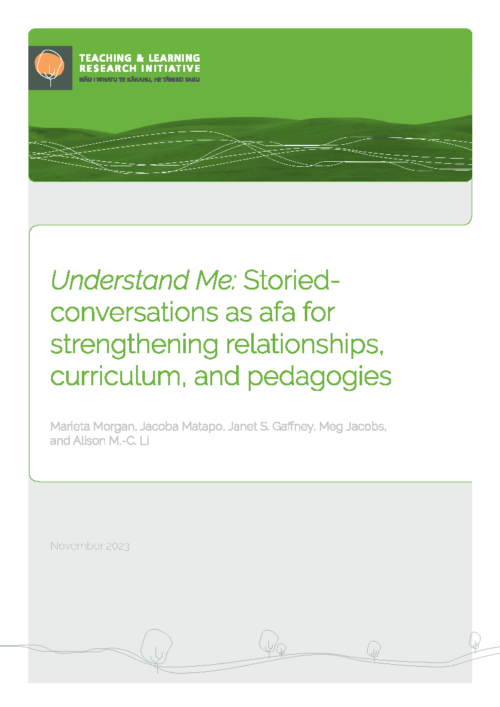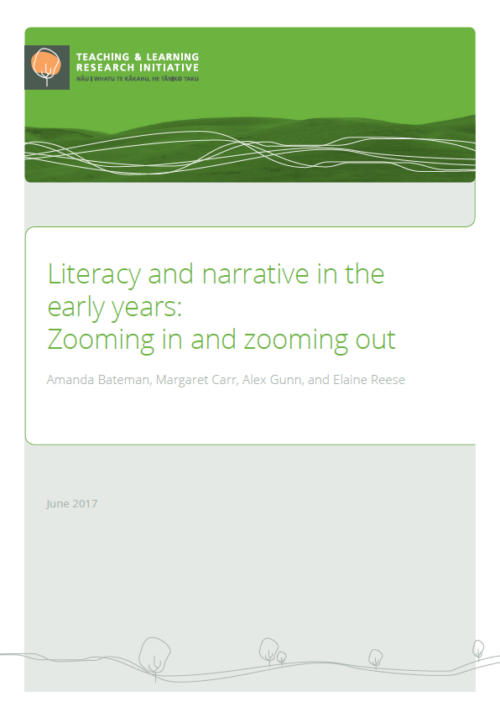
Understand Me: Storied-Conversations as Afa for Strengthening Relationships, Curriculum and Pedagogies
Mā ngā korero tuku iho tātou me ō tātou ao e kitea ai, e rongongia ai, e whaiora ai.[1] E tatou te fauina i tatou ma a tatou si’osi’omaga, e ala iā tatou tala.[2] We craft ourselves and our worlds in stories. Understand Me was born out of an aspirational exploration of ways for teachers to deepen relationships with young children and families to open space for their knowledges to be valued in the everyday educational curriculum. The origin was a desire to facilitate a shift from awareness of cultural competencies to action that values family pedagogies in the learning life of the classroom. Family pedagogies are everyday ways of knowing,


